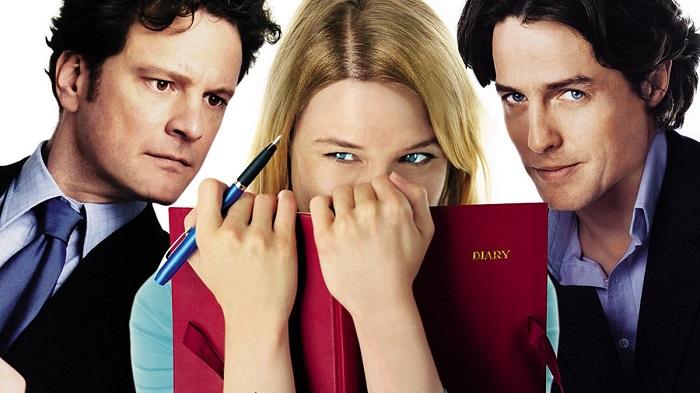How Do British Comedy Movies Represent British History and Society?

British comedy movies have long served as a lens through which audiences view both history and society. Films such as Monty Python and the Holy Grail, The Full Monty, and Bridget Jones’s Diary offer more than laughter; they reveal cultural norms, historical tensions, and social commentary. These movies blend humor with reflection, often using satire, irony, and exaggeration to illuminate aspects of British life and history. By studying British comedy movies, one can gain insight into national identity, class structures, and historical consciousness.
Humor as a Reflection of History
Satirical Depictions of Historical Events
British comedy movies frequently use satire to portray historical events. Monty Python and the Holy Grail offers a prime example. The film humorously reimagines the Arthurian legend, poking fun at medieval hierarchy, feudalism, and knighthood. The absurdity of knights being challenged by minor inconveniences or bureaucratic obstacles mirrors British skepticism toward authority. Through exaggeration and wit, the film provides a comedic but critical perspective on historical norms and structures.
Highlighting Social Change
Some British comedy movies use humor to explore social transformation. The Full Monty depicts post-industrial Britain during the 1990s, a period of economic decline and unemployment in northern England. The story of unemployed men forming a striptease act addresses issues of masculinity, class, and resilience. The humor emerges from the absurdity of the situation and the characters’ awkward attempts to reclaim dignity. By making audiences laugh, the film simultaneously sheds light on real societal challenges, offering a historical snapshot of contemporary British society.
Class and Society in British Comedy Movies
Examining Class Differences
Class has long been a central theme in British comedy movies. Films like Keeping Up Appearances and Bridget Jones’s Diary explore the tension between social classes. In Bridget Jones’s Diary, Bridget’s struggles with social expectations, career pressures, and romantic interests illustrate the constraints of modern British society. Comedy arises from her self-deprecating humor and awkward encounters, but the film also highlights class mobility and societal judgment. British comedy movies often use humor to reveal the rigidities and absurdities of class structures, making social critique accessible and entertaining.
Everyday Life and Cultural Identity
British comedy movies frequently portray ordinary life, reflecting cultural values and shared experiences. The Inbetweeners Movie, for example, emphasizes adolescence, friendship, and social awkwardness in suburban England. While exaggerated for comedic effect, the film offers insight into contemporary British youth culture. Humor acts as a vehicle to explore identity, social norms, and peer pressure, providing audiences with a relatable yet critical perspective on society.
Humor as Social Commentary
Satire and Political Critique
British comedy movies often include pointed social and political commentary. Dr. Strangelove or: How I Learned to Stop Worrying and Love the Bomb, though a British-American collaboration, demonstrates the ability of comedy to critique global politics and historical anxieties. The film uses absurdity and irony to address Cold War tensions, nuclear threats, and bureaucratic incompetence. While the humor is extreme, it reflects societal fears and critiques governmental authority, showing how comedy can illuminate broader historical and social issues.
Mockery of Institutions
Mockery of institutions is common in British comedy movies. Monty Python’s Life of Brian satirizes organized religion and political authority in ancient Judea, drawing parallels with contemporary institutions. By portraying religious zealots and political figures as absurd, the film encourages viewers to question authority and societal norms. Humor provides a safe space to explore uncomfortable truths, making British comedy movies a tool for reflection as much as entertainment.
Representation of Historical and Social Contexts
Period-Specific Humor
British comedy movies often rely on historical and cultural context for humor. Blackadder, though primarily a television series, has influenced cinematic adaptations and showcases humor rooted in specific historical periods. Each season represents a different era, from the Middle Ages to World War I, highlighting class, politics, and social customs. The comedy emerges from anachronisms, exaggerated characters, and witty dialogue, offering viewers insight into the peculiarities of historical life.
Comedy and National Identity
British comedy movies frequently explore national identity through humor. Films like Love Actually or Hot Fuzz incorporate quintessentially British manners, speech patterns, and traditions. Humor highlights the contrast between British civility and absurd situations, reinforcing cultural identity while allowing critique. These films demonstrate that British comedy movies serve both to entertain and to reflect on what it means to be British in a changing world.
Global Reception of British Comedy Movies
International Appeal
The humor and historical context of British comedy movies resonate globally. While certain references are uniquely British, the themes of social hierarchy, awkwardness, and human folly are universal. Films like Monty Python and the Holy Grail have gained international acclaim, demonstrating that British humor can communicate history and society across cultures.
Influence on Modern Filmmaking
British comedy movies have influenced global filmmakers by showing how humor can convey historical and societal commentary. The blend of satire, character-driven humor, and visual storytelling encourages filmmakers worldwide to integrate cultural critique into comedy. British comedy movies have therefore shaped not only audience expectations but also contemporary cinematic practices.
Conclusion
British comedy movies represent history and society with a unique blend of humor, satire, and social critique. Films such as Monty Python and the Holy Grail, The Full Monty, and Bridget Jones’s Diary combine laughter with reflection, revealing historical realities, class structures, and cultural norms. Through visual style, dialogue, and narrative choices, British comedy movies offer insight into both past and present society. Their ability to entertain while engaging with historical and social themes ensures their continued relevance and influence in global cinema.
- Art
- Causes
- Crafts
- Dance
- Drinks
- Film
- Fitness
- Food
- Giochi
- Gardening
- Health
- Home
- Literature
- Music
- Networking
- Altre informazioni
- Party
- Religion
- Shopping
- Sports
- Theater
- Wellness



